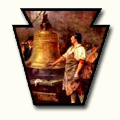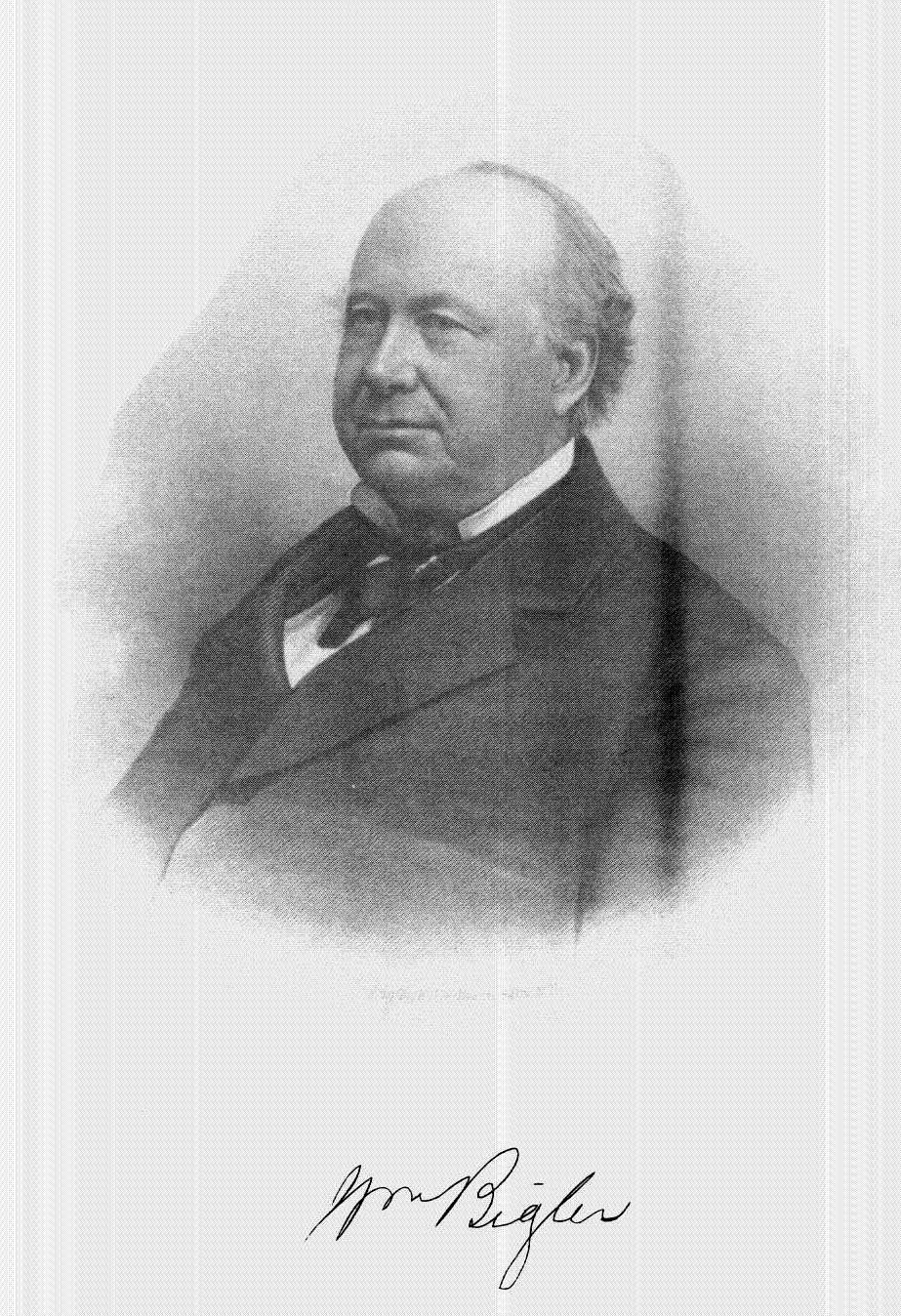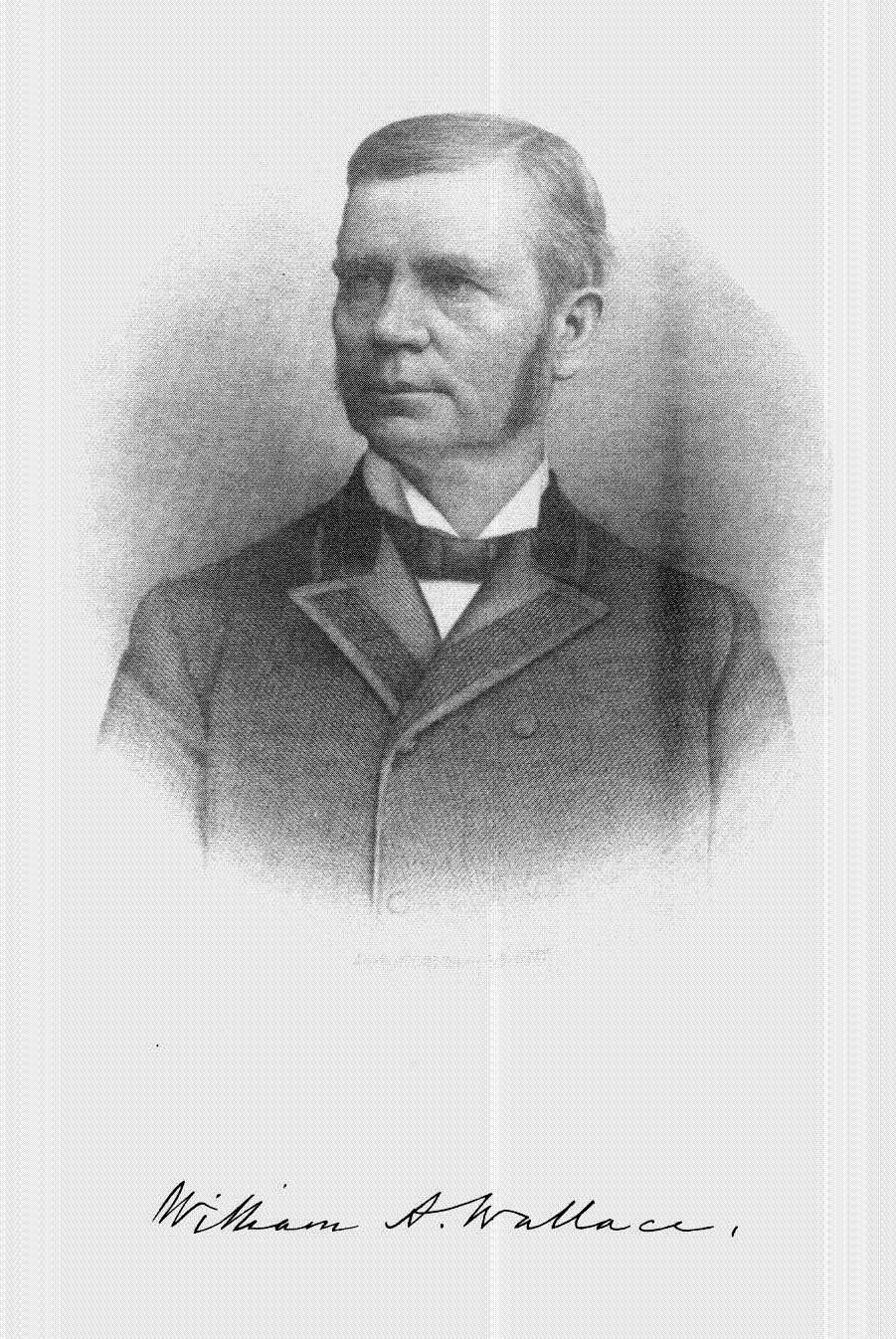| |
Page 318 HISTORY OF CLEARFIELD
COUNTY.
A. Wallace, who afterward became a prominent central figure in Pennsylvania
politics, and who was elected to the State Senate from the district composed of
Clearfield, Cambria and Blair counties, over Lewis W. Hall, then the sitting
member. Excepting the rancorous feeling engendered by the war, which was in
progress at this time, nothing occurred out of the usual course of partisan
politics.
In 1864, the anti-war feeling, fear and distrust that
pervaded the people, engendered partly by the bitter antagonisms brought about
by the war, and the discussions of its causes, in part induced by a rigid
enforcement of the draft, and in a measure, by demagogical appeals to the
feelings and passions of the people on both sides, Clearfield county achieved an
unenviable position and reputation during the war. This excitement culminated in
an immense mass-meeting assembling in the rear of the court-house on the 13th of
August, to protest against the course of Mr. Lincoln’s administration in the
conduct of
the war.
In the same year, 1864, Governor William Bigler was
pressed by Clearfield county for the nomination for Congress, which he obtained
from the district convention. Although defeated at the general election, he
received the largest majority that had ever been given to a candidate in
Clearfield county before, notwithstanding it was the year of a presidential
election in which party organizations were strictly maintained and party lines
closely drawn. From this time, the war having closed, people appeared to be too
much engrossed in adjusting themselves and their business to feel much interest
in politics, notwithstanding it was the period in which Andrew Johnson, then
president of the United States, was waging his conflict with Congress. While
people watched it with great interest and made it the uppermost subject of
discussion at their usual evening resorts, yet nothing of interest occurred to
affect local politics. The harmony of party relations appeared to be preserved
on both sides.
In the year 1868, Judge Linn, then president judge of
the judicial district in which Clearfield county was included, having resigned
his commission, and Joseph B. McEnally appointed, ad interim, it became
necessary to elect a judge to fill the vacancy. The people, without distinction
of party, were desirous of electing a Clearfield county man. Clinton county
presented the name of Charles A. Mayer; Centre county that of John H. Orvis, and
Clearfield county the name of George R. Barrett, who was then president judge of
the Twenty-second judicial district, but who had always maintained a domicile in
Clearfield county. A long and protracted contest followed, the convention
sitting in every county of the district, and finally resulted in the withdrawal
of the Clearfield county delegates from the convention. A request was presented
to Judge Barrett, signed by nearly a thousand Democrats, asking him to be an
independent candidate. The Republican party at a mass meeting held in
|
|








